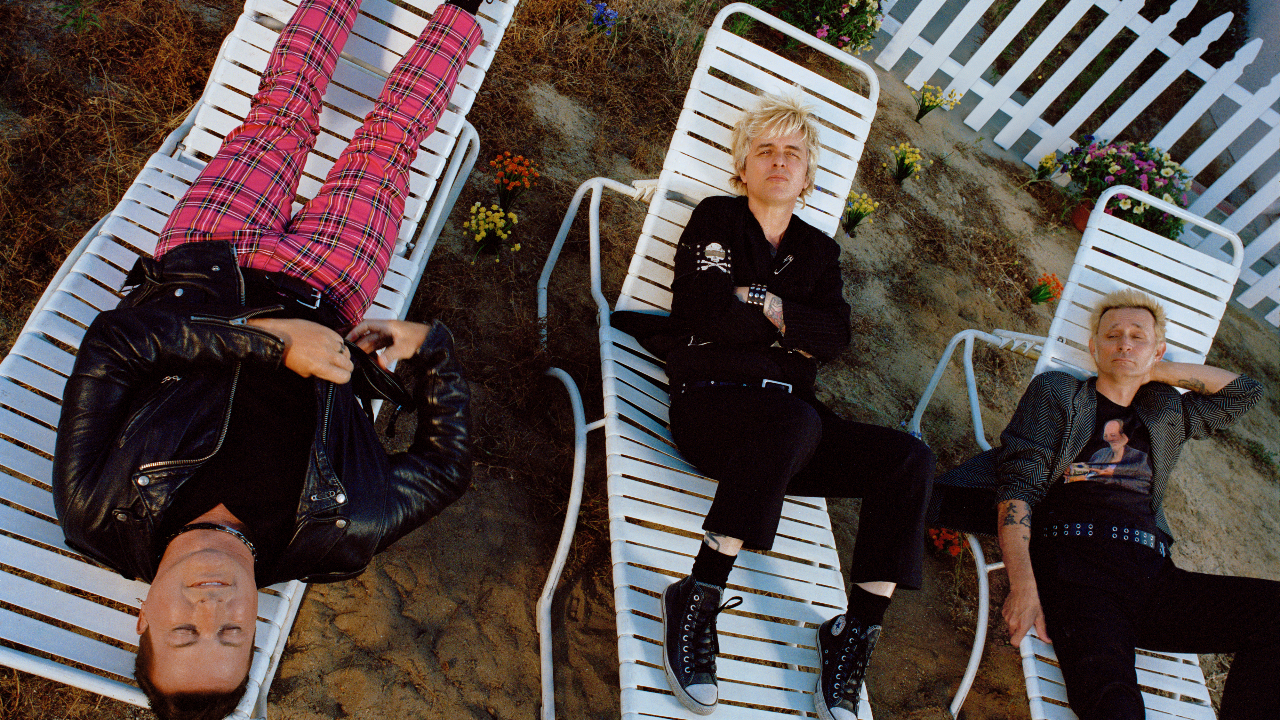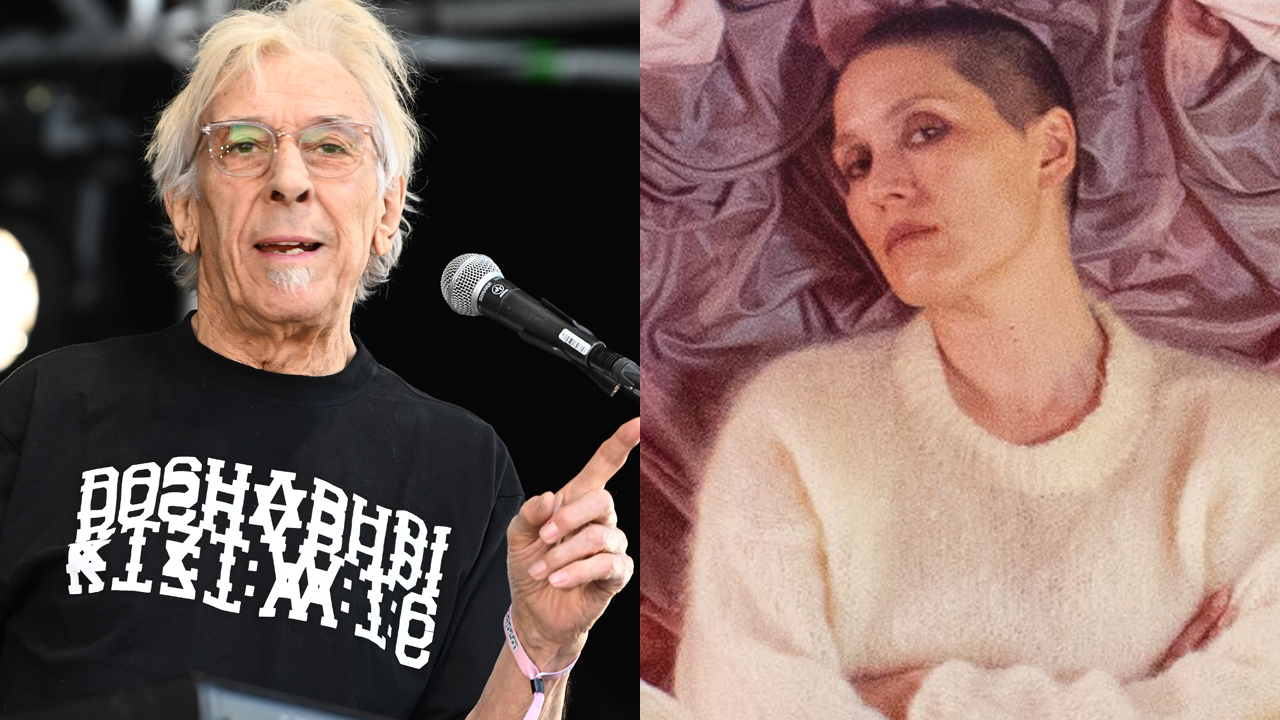Every single Green Day album ranked from worst to best
We rank the discography of the biggest punk band of all time, from raw debut 39/Smooth to major breakthrough Dookie, all the way to new album 'Saviors'

Select the newsletters you’d like to receive. Then, add your email to sign up.
You are now subscribed
Your newsletter sign-up was successful
Want to add more newsletters?

Every Friday
Louder
Louder’s weekly newsletter is jam-packed with the team’s personal highlights from the last seven days, including features, breaking news, reviews and tons of juicy exclusives from the world of alternative music.

Every Friday
Classic Rock
The Classic Rock newsletter is an essential read for the discerning rock fan. Every week we bring you the news, reviews and the very best features and interviews from our extensive archive. Written by rock fans for rock fans.

Every Friday
Metal Hammer
For the last four decades Metal Hammer has been the world’s greatest metal magazine. Created by metalheads for metalheads, ‘Hammer takes you behind the scenes, closer to the action, and nearer to the bands that you love the most.

Every Friday
Prog
The Prog newsletter brings you the very best of Prog Magazine and our website, every Friday. We'll deliver you the very latest news from the Prog universe, informative features and archive material from Prog’s impressive vault.
When Lookout! Records head honcho Larry Livermore first saw Green Day play 1988, when Billie Joe Armstrong and Mike Dirnt were just 16-years-old, he would tell anyone who'd listen that the Berkeley, California punks had the potential to be "as big as The Beatles". That prediction may have been slightly off the mark, but having sold 20 million copies of Dookie, 16 million copies of American Idiot, and influenced every single pop-punk band that's followed in their slipstream, the boys from the East Bay haven't let their former mentor down.
With the band on top of the world once again with new album 'Saviors', here's their 14-album catalogue ranked from the mediocre to the magnificent.

14. Father of All Motherfuckers (2020)
Green Day’s most recent studio outing has the standard hallmarks of a new release by a legacy artist: it was met with mostly polite reviews then swiftly forgotten about. While FOAMF’s throwback rock ‘n’ roll vibe is consistent, it feels more like a studio knockabout killing time while awaiting a producer caught up in heavy traffic than an A List band scratching creative itches.
I Was A Teenage Teenager typifies this approach: 50-year-old men singing about their adolescence from a great distance, while the Gary Glitter-sampling Oh Yeah! is about as appropriate as your old music teacher filming at a school disco.
13. 21st Century Breakdown (2009)
On the back of the success of American Idiot, Green Day made the mistake of believing that more was very much more. Like its predecessor, 21st Century Breakdown is another “rock opera”, but one that lacks the urgency of the album which gave the band their rebirth.
The title track’s classic rock climax is an early warning that this could be a journey with a capital 'J', while 21 Guns is typical of its crowd-pleasing plodders, signalling the band’s drift/shift to the middle of the road.
12. ¡Tré! (2012)
The conclusion to Green Day’s next bold step – a trilogy of shorter, punkier albums – ¡Tré! perhaps inevitably suffers with the sense that it exists to wrap up a grand idea, rather than stand tall as an album in its own right.
Opener Brutal Love contains dashes of the rock ‘n’ roll the band would continue to lean into with later albums, but with none of the urgency or originality of their best work. And when a song called Sex, Drugs & Violence is a little more than an agreeable toe-tapper, it’s probably time to move on to the next thing.
11. Revolution Radio (2016)
Conceived as a palate cleanser after two rock operas and a trilogy, Revolution Radio is the sound of Green Day attempting to get back to basics. With only the three-part Forever Now and Outlaws cracking the five-minute mark, Revolution Radio is relatively sharp and to the point, but still struggles to shake off the drag factor of what feel like recycled imagery and ideas.
Lead single Bang Bang is a joyous exception, the band penning what feels like their own getaway music, complete with a bank heist video.
10. ¡Dos! (2012)
The middle segment of Green Day’s trilogy was designed to be the most stripped down and direct. And while the undeniably direct Fuck Time is a waste of a great song title, there are some definite highlights here: Stop When the Red Lights Flash and Lazy Bones pack a pleasing one-two punch, while Lady Cobra goes all-in on the rambunctious garage rock.
While flawed, ¡Dos! is arguably the boldest and most effective experimentation Green Day have managed to pull off since their blockbuster earlier efforts.
The latest news, features and interviews direct to your inbox, from the global home of alternative music.
9. 'Saviors' (2024)
A step towards redemption after the lamentable Father of All Motherfuckers, Green Day's 14th album finds Billie Joe Armstrong's crew re-attuning themselves to modern mores.
We get TikTok and societal decay (probably not mutually divisible, when you think about it) in the crosshairs for The American Dream is Killing Me, before Look Ma, No Brains! delivers the breezy neurosis of their best material. Other highlights include Living in the ‘20s gobbing off like the snot-nosed cousin of Bad Religion’s 21st Century (Digital Boy), and Corvette Summer cruising past with a likeable power-pop energy. It’s advisable to skip a couple of lightweight ballads, but otherwise this is a credible comeback.
8. ¡Uno! (2012)
The title of lead single Let Yourself Go doubles as a mission statement for what Green Day intended with ¡Uno!, an album that embraced power pop as much as it did scratchy punk rock. Kill the DJ also manages to be a delightfully sweary missive, and one that’s happy to take its time, like a happy-go-lucky executioner taking no small measure of joy in their work.
True, ¡Uno! lacks the consistency of Green Day’s classic albums, but frontman Billie Joe Armstrong sounds freer than he had done in a long time, and all the better for it.
7. 39/Smooth (1990)
Carrying with it the hint of something special, admittedly a retrospective analysis most easily made when revisiting debut albums by megastar artists, 39/Smooth takes the raw ingredients that make Green Day unique and starts them simmering.
At The Library’s unpretentious longing shows the remarkably tender centre the band weren’t afraid to flaunt from their early days, just as Going To Pasalaqua isn’t shy about packing in melody alongside chugging riffs, with Billie Joe Armstrong’s unmistakeable vocal cascading over it. There’s also the curio of hearing a young band fretting about ageing on 16: bless.
6. Nimrod (1997)
The sound of Green Day meeting their mass audience halfway without compromise, Nimrod contains plenty of timeless moments. The opening double of Nice Guys Finish Last and Hitchin’ A Ride prove the band’s eye for vital, irresistible pop-punk remained as clear as ever, the latter’s tumbling crescendo a thrilling joy to hear all these years later.
The acoustic smash Good Riddance (Time of Your Life) remains Green Day's best-known and most-loved quieter moment, to boot, and these towering high points are enough to reduce the fact that Nimrod is overlong to a relatively minor criticism.
5. Kerplunk (1991)
Spiky and provocative, Kerplunk took no prisoners with its gun-toting cartoonish cover art nor its deeper dive into raw but melodious punk rock. This was the album that best showed the signs of what was to follow, with 2000 Light Years Away enduring as a live staple, goofy noodle Dominated Love Slave the band at their most playful and Welcome to Paradise eventually being re-recorded for their major label debut.
No One Knows is another early reminder that this was a band unafraid to slow things down and look inward, with remarkable song-writing maturity for their age.
4. Warning (2000)
The early 2000s were Green Day’s mid-career stumble. While album sales remained respectable, they found themselves lower down the punk rock pecking order than Blink-182, and there was a general sense that they’d become the wrong kind of misfits.
All of which makes Warning a divisive but compelling record. To its critics, it’s too slow, too folky and an energy-sapping listen. To those who love it, it’s arguably the most fearless move the band had made: raw, understated and boasting a title track that shows them at their belligerent best.
3. American Idiot (2004)
Green Day’s second act began with not so much a bang as a full fireworks show and Christ-like resurrection. It’s difficult now to overstate just how unexpected American Idiot was: equal parts a swing for the fences by a band on the ropes, and a familiar reassurance that you’d be a fool to doubt their nous, ambitious and song-writing skills.
Both the title track and Holiday are brilliant anti-George W Bush broadsides, while Jesus of Suburbia is one of two multi-part epics that both thumb their nose at convention and welcome you to the party. A modern rock masterpiece.
2. Insomniac (1995)
How do you follow up an album that unexpectedly and simultaneously makes you both global superstars and pariahs among punk purists? By pouring all the anxiety and needling energy into its follow-up, of course.
Insomniac appeared only a year after Green Day had announced themselves on the world stage and it’s the sound of a band shrugging off their image as cartoon punks with a deep dive into drugs, doubt and self loathing. “I’ve got a knack for fucking everything up,” sang Billie Joe Armstrong on the typically moreish Bab’s Uvula Who?, ironically providing proof that he didn’t.
1. Dookie (1994)
Green Day’s third album launched the Berkeley trio into the stratosphere, reminding the wider world that punk rock still existed. A faultless, irresistible collection of instant classics, Dookie pulls together the frantic energy of Basket Case with the artfully controlled When I Come Around and makes both sound like they were made to be together.
Warners pulled five singles, including a re-recorded Welcome To Paradise, from the band's major label debut, as it soared towards 20 million worldwide sales. But the truth is that every song sounds like a single on this brightly coloured Molotov cocktail mixed from its creators’ anarchic intelligence and unbridled sense of fun.
A long-time contributor to Kerrang! and feature writer for Noisey, Fightland and more, punk rock lifer Alistair Lawrence wrote the acclaimed Abbey Road: The Best Studio in the World in 2012. Hopefully Ridley Scott will forgive him for accidentally blanking him in one of the studio’s hallways, should they ever meet again.
